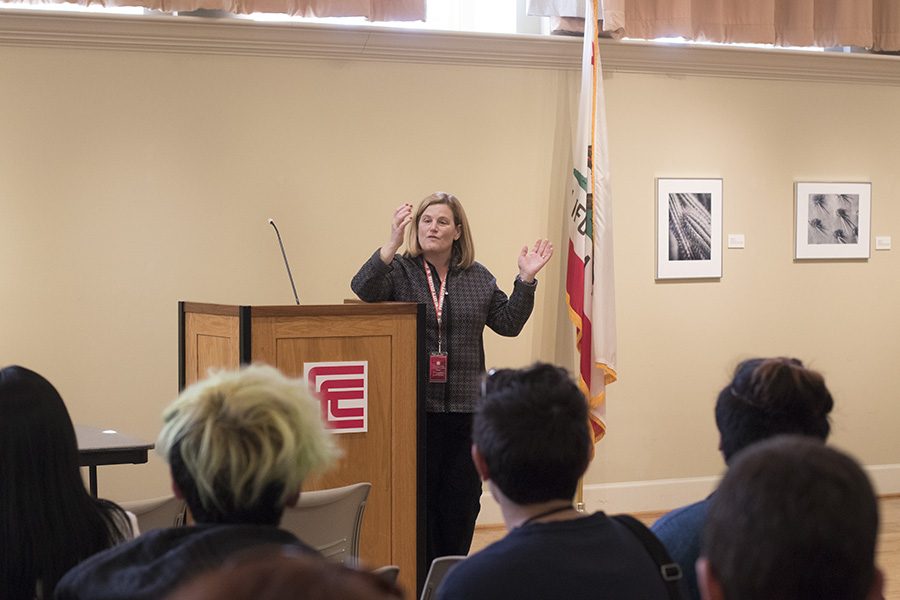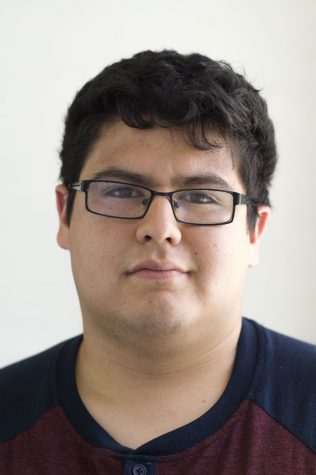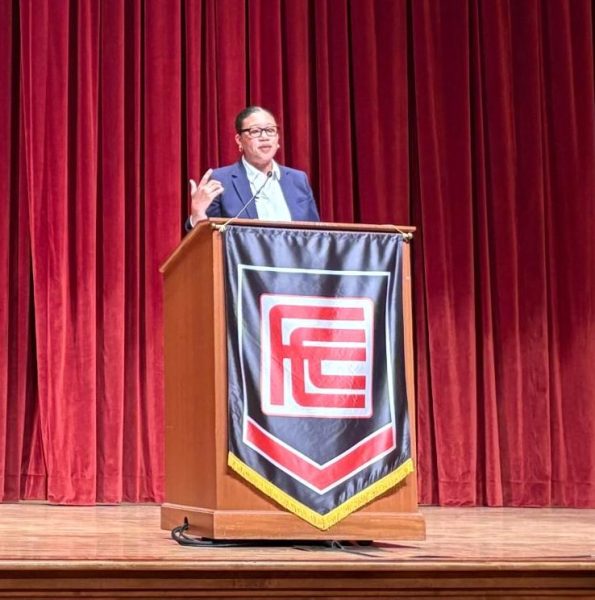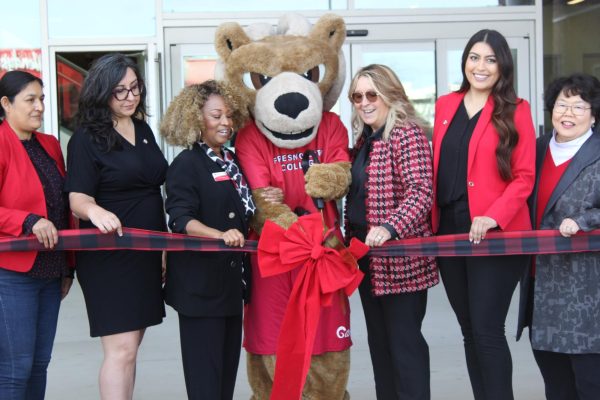Accreditation Day Arrives Mostly According to Plan
Photo by: Larry Valenzuela
Chair of Chairs for accredation team, Dr. Erika Endrijonas speaks to students and faculty as the a forum on Tuesday, March 6, 2018. Photo by Larry Valenzuela
It’s 8 a.m. on March 6 — accreditation day — and the double doors to the room hosting the accreditation meeting are locked; tables are undressed, and a planned breakfast is not ready.
Administrators and instructors have been preparing for this day for months, for a group of their peers from other colleges representing the Accrediting Commission for Community and Junior Colleges (ACCJC) to descend on the campus for a full tour and to determine if Fresno City College meets all standards.
Yet, even with all the planning, a catering issue threatens to derail the much awaited meeting.
Before long, quick thinking administrators arrive, open the door and hastily organize a breakfast order. FCC President Carole Goldsmith arranges for the tour to take place before the meeting, giving everyone more time.
“In the grand scheme of things, it’s OK,” Goldsmith said. The administration and the food service staff were able to pull it together quickly, rendering any schedule changes unnecessary. The visiting team of accreditors arrived as planned.
“What happens is, every eight years colleges get accredited. They look at every aspect of the college,” said Kathy Bonilla, public information officer. “We do a self study to show how we’re doing, and then the accreditation team comes and visits the college, and they see if what we said in that accreditation report is true.”
That report is called the Institutional Self Evaluation Report (ISER), a 400 page document that details the college’s analysis of its own ability to meet the standards set by the ACCJC.
“The primary focal points are found in the four standards,” said Erika Endrijonas, the chair of chairs of the visiting accreditation team. Those four standards comprise a college’s mission statement; the academic and student support programs; human, physical, technological, and financial resources, and governance, how well the president and the district communicate and work together.
“This is a process of self-reflection,” said Cyndie Luna, the officer of accreditation. “So you really do look at what your gaps are.”
Luna has served on visiting accreditation teams and has now taken the leading role in compiling the ISER and preparing the college for accreditation, a once every seven years event.
Two cycles ago, FCC failed to meet those standards and was put on warning, a sanction that limits the college’s abilities until they come into compliance with the standards. A few months after the accreditation warning was imposed, it was lifted.
Luna said she is not worried about repeating that performance. “We not only have met those standards now, we exceed them. Our processes are rock solid.”
On Thursday, at the conclusion of the accreditation team’s visit, Endrijonas will present her overview comments, general recommendations that are not technically the result. The results only become official when the full commission meets in June.
Before that, Endrijonas’ team will compile their report; Goldsmith will verify the accuracy of any specific claims, and then that report will be presented to the full commission. That commission will decide whether FCC receives full accreditation, receives accreditation with recommendations, receives a warning sanction, is put on probation, or loses its accreditation.
Even if the school is found noncompliant in several vital areas the total loss of accreditation is exceedingly unlikely, Endrijonas said. “It has to go pretty darn far for an institution to lose its accreditation,” she said.
“They will have recommendations for us, that is certain,” Luna said. “And we use those recommendations to become better, stronger.”
“[While] today, this week is the Super Bowl of colleges, it’s really about the spring training we do all year long to stay in condition,” Goldsmith said. She and Luna are both confident that the college will exceed expectations and maintain its accreditation. “Just because they’re here this week, that does not mean the work of accreditation, and ongoing evaluation stops.”
As for the catering snafu? Goldsmith said it was an opportunity to come together.
“If this is our biggest problem during our site visit,” Luna said, “that’s great!”
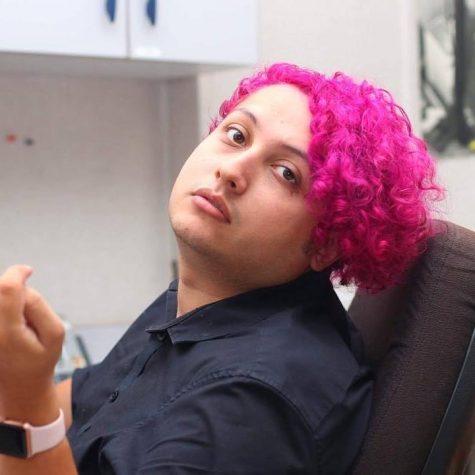
Tommy Tribble is the 25-year-old editor in chief of the Rampage, formerly the opinion editor. Tommy is an English major, a writer, an aspiring novelist,...

